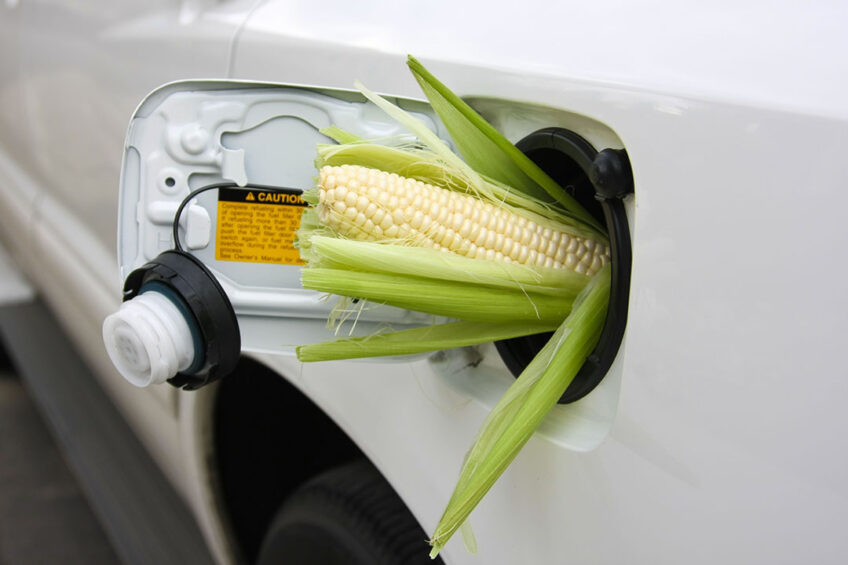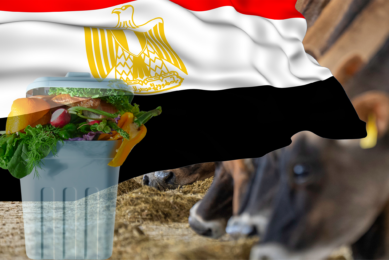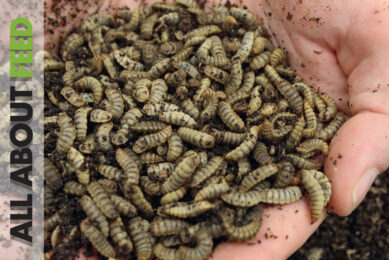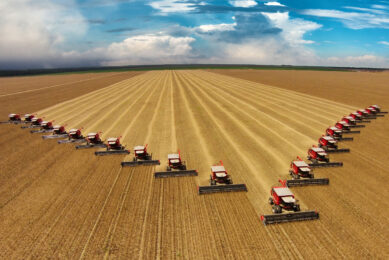German biofuel industry in jeopardy, and so is feed production

Germany mulls phasing out crop-based bioethanol production in the coming decade chasing a declared goal to fortify European and world’s food security. However, as market players reveal, the effect of the widely discussed reform is likely to be quite the opposite.
In early 2023, German environment minister Steffi Lemke prepared a draft bill proposing an end to the production of crop-based biofuels in stages by 2030
“Biofuels stand for land consumption and loss of biological diversity,” Lemke said in a statement published on the environment ministry’s website in January 2023. “To replace only around 4% of fossil fuel use in German road transport, a land space in Germany and abroad is needed, equal to about 20% of the German agricultural area. That is not future-orientated.”
Better to produce ‘real bioethanol’
As Lemke explained, it would be better to encourage the production of “real bioethanol” from garbage, waste and used edible oil instead of agricultural commodities.
The German bioethanol industry association calculated that only 4% of the grain harvest in Germany, in fact, was used for bioethanol. “Only 2% of the arable land is required for bioethanol production,” said Stefan Walter, the association’s managing director.
The feed industry to suffer
Fabian Preuss, communications manager of the German Association for Animal Nutrition, declined to provide a comment on how the proposed restrictions could impact the German feed industry. He explained that if the measure is enforced, the impact will be felt not just in Germany but in the entire European feedstuff market, which means it should be better handled by the European feed industry associations.
FEDIOL, in general, agreed with the calculations of the German biodiesel industry organisations suggesting that the ban could end the production of roughly 3 million tonnes of feedstuff per year. “Germany used 2. 516 million tonnes of biodiesel in 2022. If all that biodiesel would come from rapeseed oil, that would represent close to 3.5 million tons of rapeseed meal, which would not be produced if there is no more demand for rapeseed oil-based biodiesel,” commented Geert Vanmarcke, International Market Adviser with FEDIOL.
The German environmental ministry believes that the ban on crop-based biofuel would drive farmers to grow other edible products, meaning that the food and feed sector will eventually benefit from the decision. However, market players pointed out that this is not how the industry works.
“The German environment ministry seems to forget that growing rapeseed, whereby part of the resulting rapeseed oil goes to biodiesel, also results in a substantial production of rapeseed meal as protein for Feed,” Vanmarcke said.
“If the production of rapeseed would be abandoned because of its use in biodiesel – and I do not see why there would be any environmental concerns around this, there would be no possibility to grow similar amounts of protein crops, and the EU and German protein balance would be endangered,” Vanmarcke added.
An acceptable compromise
Asbjørn Børsting, FEFAC President commented that the sector which processes crop-based biofuels for renewable energy purposes, such as biodiesel and bioethanol production, is an important supplier of key protein-rich co-products, in particular rapeseed meal, sunflower meal and DDGS.
“These resources are essential to the EU feed sector to help reduce EU import dependency on imported soybean meal. The production of bio-ethanol competes directly for certain cereals (mainly maize), which in poor crop years (drought impacts) may increase pressure for access to competitive feed grains for the feed industry as happened in 2022 in South-Eastern Europe,” Børsting said.
FEFAC therefore considers that the current maximum EU threshold of 7% for the contribution of crop-based biofuels towards renewable energy production targets is an acceptable compromise in terms of balancing feed industry access to both protein-rich feed ingredients and feed grains, Børsting said, adding that FEFAC recommends the EU to include a safeguard based on the EU food waste hierarchy to ensure feed security and functioning of the Single Market in case of crop shortages.
Better use of food waste-based streams
According to Børsting, EU tax subsidies for growing use of biomass for anaerobic digestion provides new opportunities to convert waste-based streams into renewable energy. However, he added, FEFAC members are deeply concerned that diverting co-products traditionally used in animal feed, like wheat bran, sugar beet pulp, former foodstuffs to anaerobic digestion, will reduce the EU’s feed autonomy and the feed sector capacity to reduce GHG emissions linked to feed production, which heavily relies on raising the share of co-products in feed formulation. FEFAC therefore remains opposed to the classification of such co-products as an advanced biofuel.
Biogas production typically does not deliver any co-product that is used in animal feed production, meaning that this non-human edible nutrient source is lost from the feed and food production systems, Børsting said. However, FEFAC fully acknowledges that an increase of biomass production and better use of food waste streams for biomass production – excluding co-products traditionally destined to animal feed – can help meet increasing demand for both animal protein and renewable energy.
“There are clear synergies to be obtained from policies stimulating sustainable, integrated bioeconomy activities, such as the bio-refining of grass. FEFAC therefore fully supports the establishment of a comprehensive EU Biomass Factsheet in partnership with the EU farming, food processing and bioenergy sector,” Børsting said.
The legal battle is far from over
The idea to decrease crop-based biofuel use has been brewing in the German environmental ministry for several years. However, it fully materialised with the beginning of the Ukrainian military conflict, commented Frank Brühning, spokesperson for the German Biofuel Industry. As Ukraine started experiencing difficulties with exporting food, it was assumed that manufacturing biofuels from edible feedstock should be curtailed in order to maintain the market’s stability, Brühning explained.
“This proved to be wrong. On the one hand, because there is still a lot of oil, grain and oilseeds coming from Ukraine, and on the other hand, because there is really enough feedstock available on the global market, so supply is not really the problem,” Brühning said.
The discussions about the future of biofuels in Europe are tightly linked to their performance in reducing CO2. This leads to the theory of indirect land-use change (ILUC): land use for the production of biofuels feedstock could displace food production and lead to expanding agricultural land elsewhere, for instance in high carbon forests and peatland.
According to the iLUC theory, the emissions caused by this effect undo the savings achieved by biofuels replacing fossil fuels. But Brühning noted that the world’s top scientific organisation, the Intergovernmental Panel on Climate Change (IPCC), clearly states that due to a great number of shortcomings of the theory, there is low confidence in the attribution of emissions from iLUC to bioenergy.
However, for the German green party, which is currently controlling the Environmental Ministry, these arguments don’t sound convincing enough.
The proposal is still the subject of fierce debates among German government officials and lawmakers. Steffen Bilger, a member of the German Parliament, has recently accused the green party members of chasing “policy with simple enemy images, clumsy black-and-white painting and under-complex arguments”. Biofuels from food are already capped in Germany more strictly than required by the EU. The use of waste and residual materials “that nobody wants on their plate” is particularly encouraged, explained Bilger.
What will farmers do?
“If crop-based biofuels like bioethanol and biodiesel are not produced anymore, demand for agricultural products goes down, leading to the question: what will farmers do,” Brühning said.
“There is not enough demand for rape oil because humans have no need for such quantities of rape oil. And you won’t produce rape only to put it in the feed market since the higher value comes from the oil. It would put a completely new framework to the market, and the farmers would have to figure out how to proceed with their business,” Brühning added.
German green party members believe the farmers should quit growing food and rather capture CO2 by leaving their land to restauration, but financing this and stabilising the captured carbon in the long term is really questionable, Brühning claimed.
Market players believe there is definitely room for a bad scenario where the European feed industry losses 3 million tonnes of feedstuff coming from rapeseed processing in the next few years. There are no guarantees that it will happen, even if the German restrictions on crop-based biofuels are enforced, because there are many other factors in play. However, this scenario seems likely.
“What’s clear is that we have a gap of protein feed, especially in Germany,” Brühning said, citing recent OVID data indicating that 70% of protein feed on the German market has to be imported. “That gap would widen.”
In addition, the German government set a target to become more independent on feed protein in the coming years. “So, in light of this, phasing out crop-based biofuels would be clearly a move in the wrong direction,” Brühning warned.
Green agenda
Another part of the problem is that European green parties have all similar views about crop-based biofuel production, which means that in the long run, biofuel production could be endangered in other parts of the continent. In addition to Germany, greens are now presented in the governments of Austria, Belgium, Finland, and the Republic of Ireland. Luxembourg, Montenegro and Scotland.
Brühning said that the challenges the feed industry may face due to a ban on crop-based biofuels will not convince environmentalists. “When we say that protein feed production would decline, they answer that we should not produce that much feed anyway because we should reduce our meat consumption in the first place. We are kind of living in different worlds,” he added.
The European bioethanol sector has been steadily growing during the past decade, and the trend is expected to continue as the EU aims to increase the share of renewable energy in transport to at least 14% by 2030. It is yet to be seen whether the German environmental ministry’s proposal can prevent this from happening.











